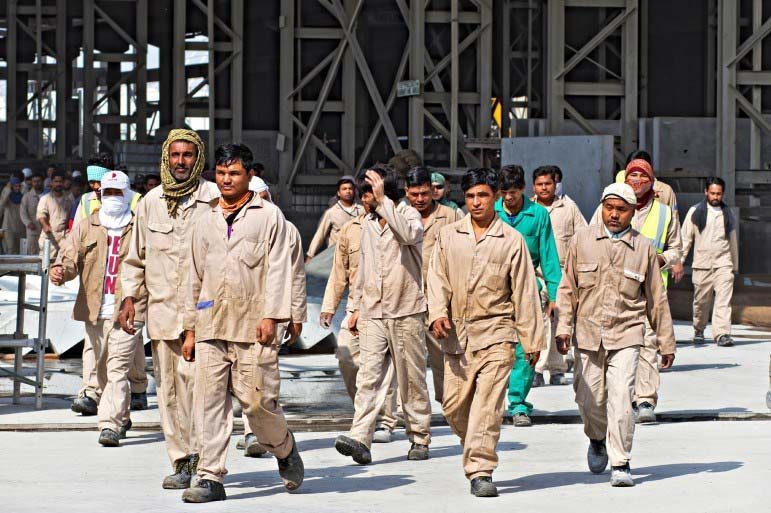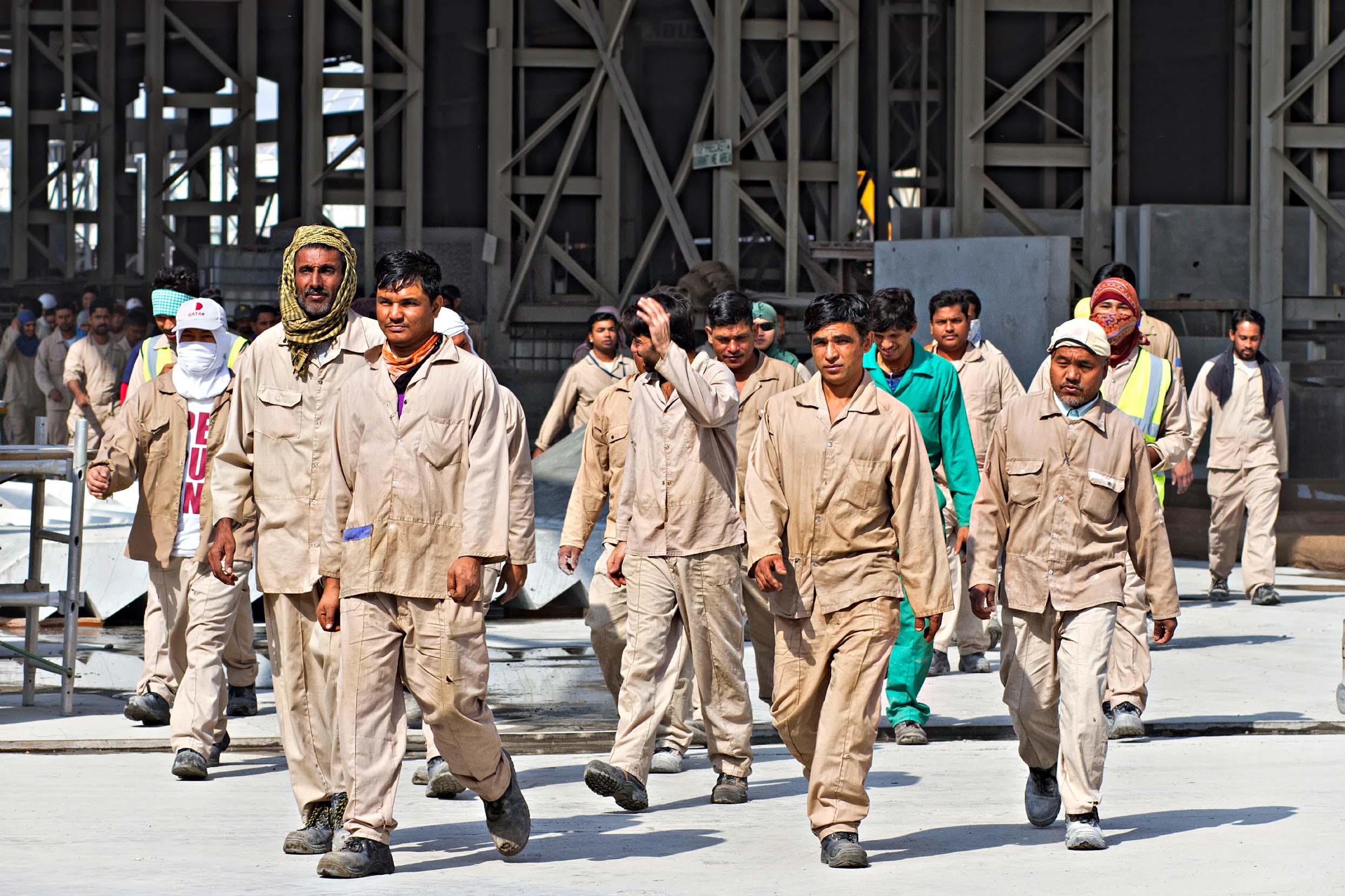
Following meetings with several high-level Qatari officials this week, members of the European Parliament (EP) told reporters in Doha that the country plans an imminent labor reform.
A delegation from the parliament’s foreign affairs and human rights committees are here for a two-day visit to look into the working and living conditions of low-income expats in Qatar. They also spoke to officials about increasing economic cooperation with the GCC state, Gulf Times reports.
According to the newspaper, the delegation met with Qatar’s Prime Minister, the Minister of Culture, Art and Heritage and senior government officials and representatives of Hamad bin Khalifa University, Qatar Investment Authority and Qatargas, among others.
Changes to the system
During a press conference yesterday, parliament members praised the openness of the government and Qatar’s efforts to reform its labor system.
According to a transcript provided to Doha News by the Supreme Committee for Delivery & Legacy, Portuguese EP member Mario David said:
“We welcome that in different meetings we were told there will be a deep revision of the old system. We were told this in every meeting. We wait for these measures that show that, despite our trip, the Qatari authorities are taking this seriously.”
…It is not up to us to announce what happens but we have been told in the not too distant future this reform will take place.”
Speaking to David on the sidelines of last night’s conference, the Peninsula reports him as adding that a new law could be implemented by the time the EP returns in September for another visit.
The Ministry of Labor and Social Affairs was not immediately available for comment about potential changes to kafala (Arabic for sponsorship), but the government has been talking about reforming the system for years.
Currently, the law is such that expats must get their sponsors’ permission to leave the country (even for vacation), to switch jobs, or to rent a home or obtain a car loan.
In 2012, a task force was created to re-examine the sponsorship system.
Potential changes that were floated included the idea of replacing kafala with a contract signed by both parties, and removing the no-objection certificate requirement that prevents many expats from switching to better jobs here. If an employer does not grant an NOC, expats cannot work in Qatar again for two years.
Scrutiny continues
The European delegation’s trip comes weeks after the EP held a meeting to urge labor reform in Qatar, and months after it passed an emergency resolution condemning the widespread abuse of construction workers here.
That resolution stopped short of calling on Qatar to abolish its restrictive kafala system, as did the delegation yesterday. However, British EP member Richard Howitt said:
“We say there should abolishment of exit visa. We want people to be able to change their employer without being penalized. We call for a change in sponsorship and recommend the government is the sponsor, not the employer.”
Meanwhile, international scrutiny of Qatar’s labor record in the run-up to the 2022 World Cup continues.
Yesterday, for example, sports website Deadspin published an article claiming that more workers would die before Qatar’s World Cup than were killed in the New York World Trade Center attacks of Sept. 11, 2001.
In response, the Supreme Committee for Delivery & Legacy rejected the claim as baseless, according to an email published by Deadspin who said they were sent a note from the body’s spokesman.
Thoughts?







